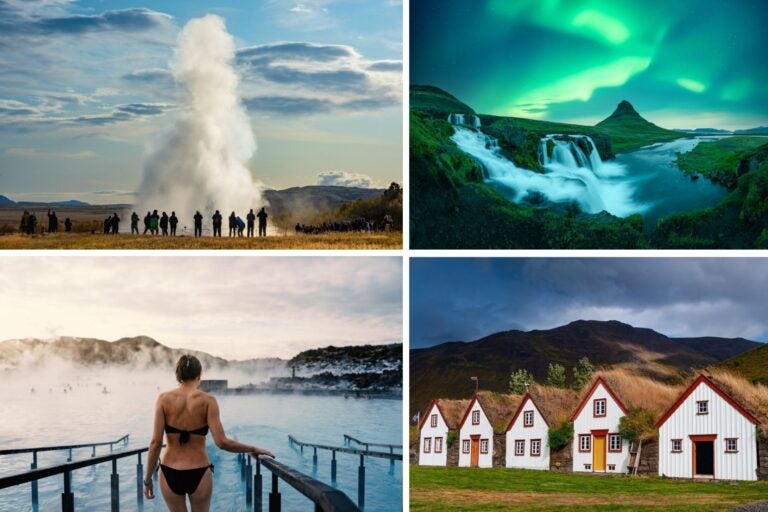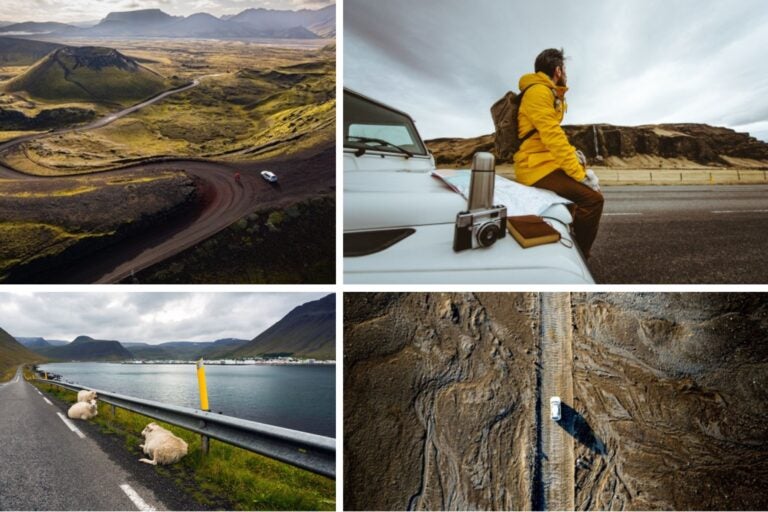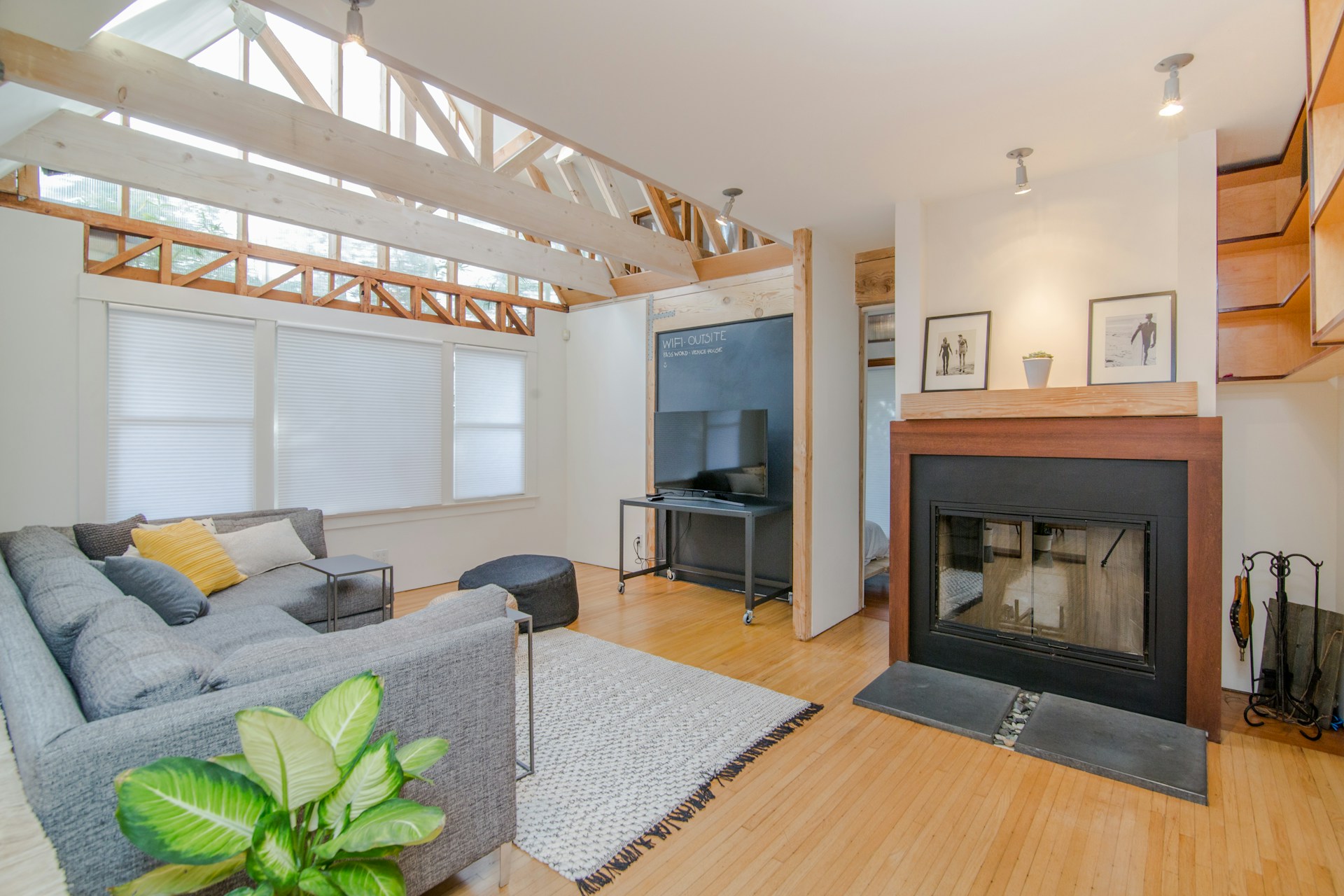Live in Iceland: Advantages and disadvantages
Experience the safest country in the world with one of the highest quality of life. We show you what it's like to live in Iceland.
If you decide to live in Iceland, you’ll find yourself surrounded by some of the most incredible and untouched nature on Earth. Known as the land of fire and ice, Iceland offers a breathtaking mix of black sand beaches, powerful waterfalls, massive glaciers, and the mesmerizing northern lights.
Plus, Iceland ranks among the countries with the highest quality of life, thanks to its strong safety record and stable economy. If you’re thinking about living here for a while, we’ve got everything you need to know before making the move. Let’s dive into the pros and cons!
Quality of life in Iceland
If you want to live close to nature while working remotely, Iceland’s digital nomad visa lets you do that for up to six months. Just keep in mind, unlike other nomad visas, it’s a one-time deal and can’t be renewed.
On the other hand, you can also do a student exchange with your university or simply settle here for a period of time.
Calling Iceland home means enjoying one of the best quality-of-life environments worldwide, as highlighted by the Social Progress Index and OECD research. Here’s a closer look at the key factors that make this country stand out.
Education in Iceland
Iceland’s education system is public, free, and highly regarded. According to OECD’s Education at a Glance report, literacy is at 100%, and nearly all teens between 15 and 19 are enrolled in secondary school. Some of the country’s top universities include:
- University of Iceland (Reykjavik): It’s the largest and most well-known university, offering courses in both Icelandic and English. While tuition is free, there’s an annual fee of around $528.
- University of Akureyri: It focuses on social sciences, education, health, biotech, IT, and law. The yearly fee is about the same as at the University of Iceland.
- Iceland University of the Arts (Reykjavik): Here, you can pursue studies in visual arts, design, architecture, music, theater, and dance. The annual fee starts at around $2,617.
Iceland is part of the European Higher Education Area through the Bologna Process, so its degrees are recognized across Europe. International students can also apply for Erasmus+ scholarships to study there.
Healthcare system in Iceland
If you’re a citizen of an EU or EEA country, living in Iceland means you can access the public healthcare system for free using your European Health Insurance Card (EHIC). But if you come from countries like Mexico or Argentina, you’ll need to get mandatory health insurance during your first six months in Iceland. After that, you can register with the public healthcare system and receive free medical care.
Like other Nordic countries, Iceland’s healthcare system is universal, public and tax-funded. The most important hospitals are:
- Landspítali (National University Hospital of Iceland): The main hospital of the country in Reykjavík with emergency and all kinds of specialties.
- Akureyri Hospital: Second largest hospital and located in the north.
- South Iceland Healthcare Institution: Located in Selfoss in the south of the country, with primary care and minor emergencies.
Safety in Iceland
What really stands out about living in Iceland is how safe it feels wherever you go. The 2024 Global Peace Index even named it the safest country worldwide, violent crime is almost unheard of and police presence is minimal.

Economy and wages in Iceland
Iceland’s economy may be small, but it’s steady, relying mostly on fishing, tourism, and renewable energy. Here’s a look at the typical salaries for someone working at a local company:
- Average gross salary: $5,210
- Approximate minimum wage: $2,815
The Mercer Cost of Living Survey shows that the cost to live in Iceland is among the highest in Europe. To give you an idea, a coffee usually costs around $4.50, and a beer can easily run you about $10.
Internet connection in Iceland
Iceland ranks among the top five countries worldwide for average fixed internet speeds, hitting around 190 Mbps, according to the 2024 Speedtest Global Index. Even remote areas have reliable 4G and 5G coverage. Almost every household has internet access, and people commonly use local online stores like Heimkaup.is, Aha.is, and Netverslun.is. That said, being an island nation means ordering from abroad can come with long wait times and high shipping costs.
If you want fast, reliable, and secure 5G internet while living in Iceland, Holafly’s monthly plans are a great option. You’ll get connected as soon as you arrive, with easy activation through their app. Plus, you can enjoy unlimited data and connect two devices at the same time for $64.90 a month.
Important: If you are a frequent traveler and want to stay connected without worrying about expensive roaming or looking for a new SIM at every destination, Holafly’s subscription plans are for you. With a single eSIM, enjoy internet in more than 170 countries for a fixed price and no surprises on your bill. Travel without limits and connect easily and securely! 🚀🌍

Advantages of living in Iceland
Imagine traveling along the Golden Circle, the Ring Road, the South Coast, or the Westfjords, where you can catch the stunning northern lights. Living in Iceland lets you truly connect with untamed nature while enjoying a great quality of life. Here are some of the perks you can expect:
- High quality of life: Perfect work/life balance, high salaries and excellent family life balance.
- Nature and clean air: The crisp, pure air in Iceland is truly one of a kind, thanks to its breathtaking landscapes filled with waterfalls, beaches, glaciers, and hot springs.
- Equality and social rights: Iceland is a world reference in LGTBIQ+ rights, gender equality and inclusive social policy.
- Progressive and open society: Highly educated, welcoming, open-minded local population with a high level of English.
- Government transparency: Iceland ranks among the world’s most politically transparent countries, according to Transparency International, meaning corruption is virtually nonexistent.

Disadvantages of living in Iceland
Living in Iceland might seem like a dream come true, but it’s not all perfect. There are some challenges and realities that can make adjusting to life here tougher than expected. Here’s a closer look:
- Extreme weather: Icelandic winters are harsh, long, cold, and often pretty gloomy. In December, you’ll get just a few hours of daylight. On top of that, the weather can change quickly throughout the day, shifting from strong winds to rain, snow, fog, or even sunshine.
- Limited and expensive rent: Rent demand in Reykjavik far exceeds supply, causing prices to skyrocket. A one-bedroom apartment can run anywhere from around $1,500 to $2,000. To save money, many foreigners end up sharing apartments.
- Geographic isolation: There aren’t many flight or ferry connections, so if you’re used to traveling often, you might feel a bit isolated here.
- Icelandic language: While most people speak English fluently, you’ll need to know Icelandic for certain jobs. It’s a pretty unique and challenging language, unlike many others.
Frequently asked questions about what it’s like to live in Iceland
If you’re used to a warm climate, Iceland’s harsh winters and short daylight hours can feel pretty overwhelming at first. On the flip side, summers bring almost nonstop daylight. It just takes some time to get used to.
Iceland is always looking for healthcare workers and skilled professionals. There are also lots of jobs in tourism and hospitality. For the best chances, check out official job sites like EURES or Job.is.
Reykjavik offers a lively scene with concerts, festivals, bars, and museums to enjoy. Outside the city, nature provides its own kind of fun—whether it’s relaxing in the Blue Lagoon’s hot springs or taking trips to explore the glaciers.
Eating out in Iceland tends to be pricier than in many other European countries. For instance, a meal for one can range from about $25 to $40, and a beer usually costs around $10.
If you’re from an EEA country, you just need to register if you plan to stay over three months. For others, a residence visa is required, whether it’s for a job, studying, being a digital nomad, or joining family.





 Language
Language 


















 No results found
No results found








